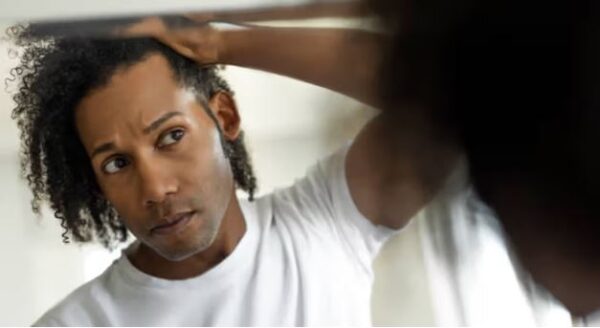Lifestyle
3 ways to fix your hairline
1. Medication and topical treatments
One of the most common approaches to treating a receding hairline is medication and topical treatments. These solutions are easy to use and can be highly effective when used consistently.
- Minoxidil: Available over-the-counter, minoxidil is a topical treatment that helps stimulate hair growth and slow down hair loss. Applied directly to the scalp, it can improve the appearance of thinning hair.
- Finasteride: This prescription medication, taken orally, works by reducing the levels of dihydrotestosterone (DHT) in the body, a hormone linked to hair loss. It can help prevent further hair loss and promote regrowth.
- Hair growth shampoos: Specialized shampoos containing ingredients like biotin, ketoconazole, and caffeine can help strengthen hair follicles and encourage growth.
2. Lifestyle changes and home remedies
Incorporating certain lifestyle changes and natural remedies can also help in maintaining a healthy hairline.
- Diet and nutrition: A balanced diet rich in vitamins and minerals is crucial for healthy hair growth. Foods high in vitamin E, vitamin A, iron, and protein can strengthen hair follicles and promote growth.
- Scalp massage: Regular scalp massages can improve blood circulation to the hair follicles, encouraging growth and improving hair thickness.
- Essential oils: Oils like rosemary, peppermint, and lavender have been shown to improve hair growth. Mix a few drops with a carrier oil and massage into your scalp regularly.
3. Hair transplant surgery
For those looking for a more permanent solution, hair transplant surgery might be the best option. This procedure involves transplanting hair follicles from one part of the body (usually the back of the head) to the thinning or balding areas.
- Follicular Unit Transplantation (FUT): This method involves removing a strip of scalp from the donor area and transplanting the hair follicles to the receding hairline.
- Follicular Unit Extraction (FUE): In FUE, individual hair follicles are extracted and implanted into the thinning areas. This method is less invasive and leaves minimal scarring.
Both procedures have high success rates and can provide a natural-looking hairline when performed by experienced surgeons.
Whether you choose medication, lifestyle changes, or surgery, there are effective ways to combat a receding hairline.
It’s essential to consult with a healthcare professional to determine the best approach for your specific situation. By taking action early, you can maintain a healthy and full hairline for years to come.








